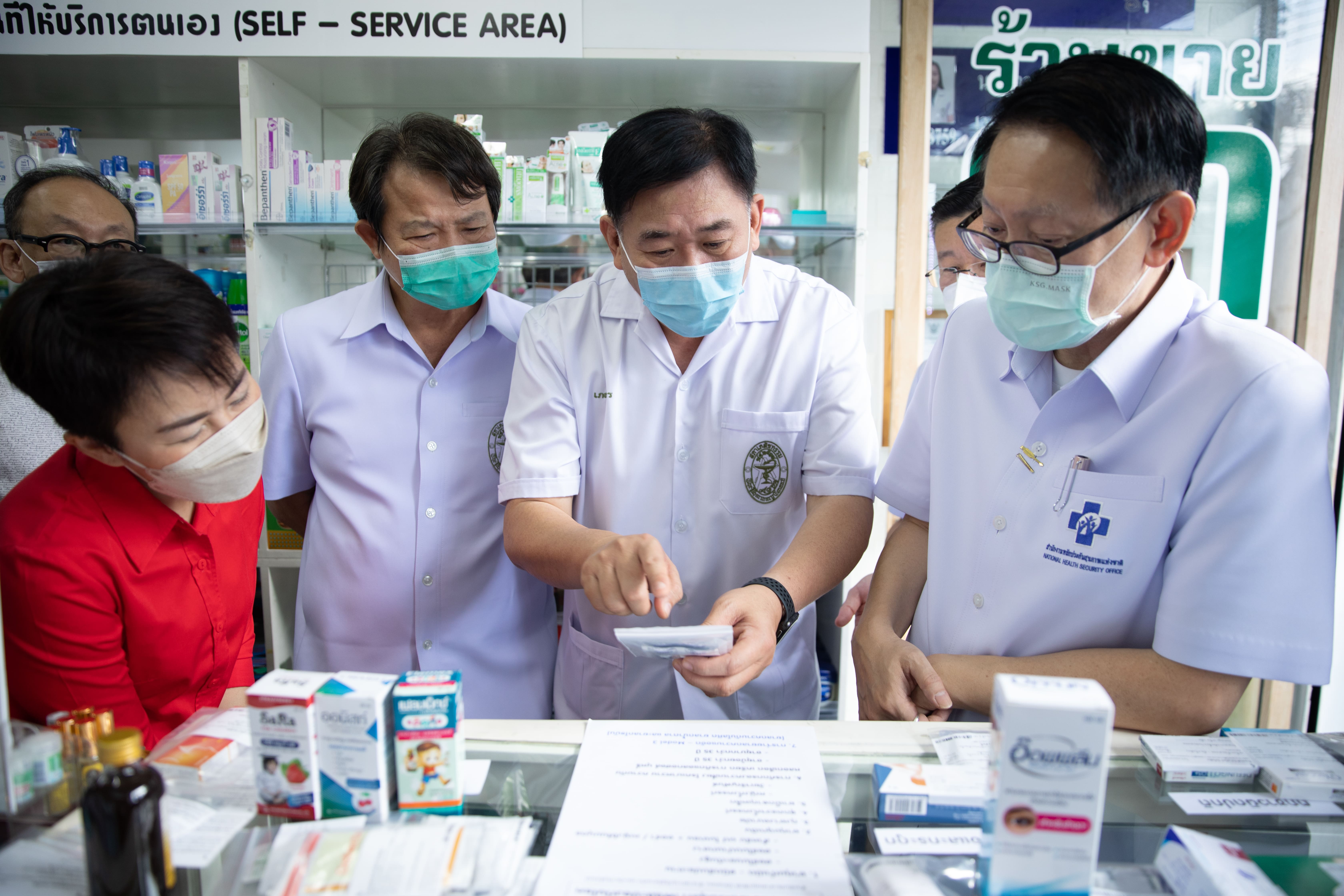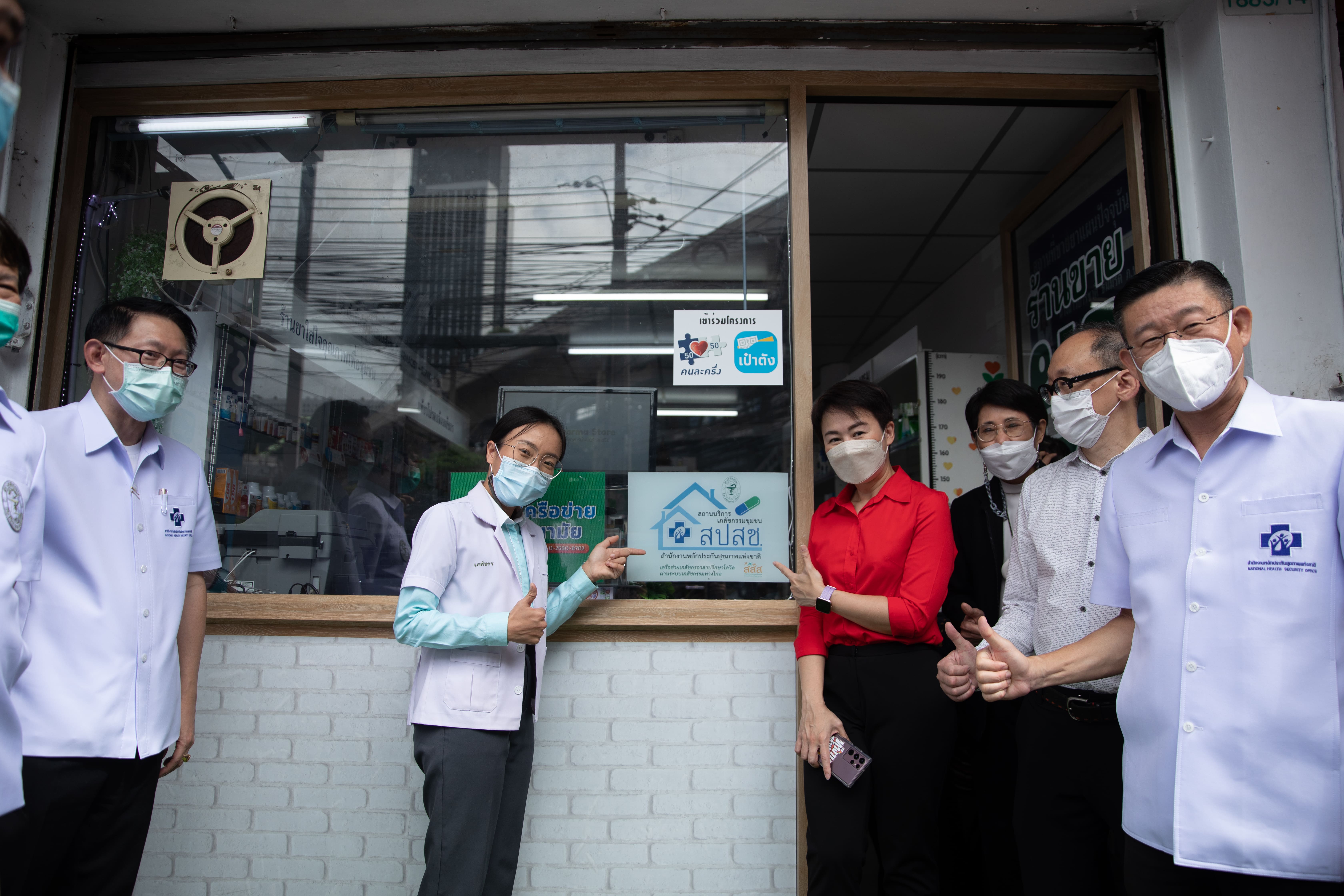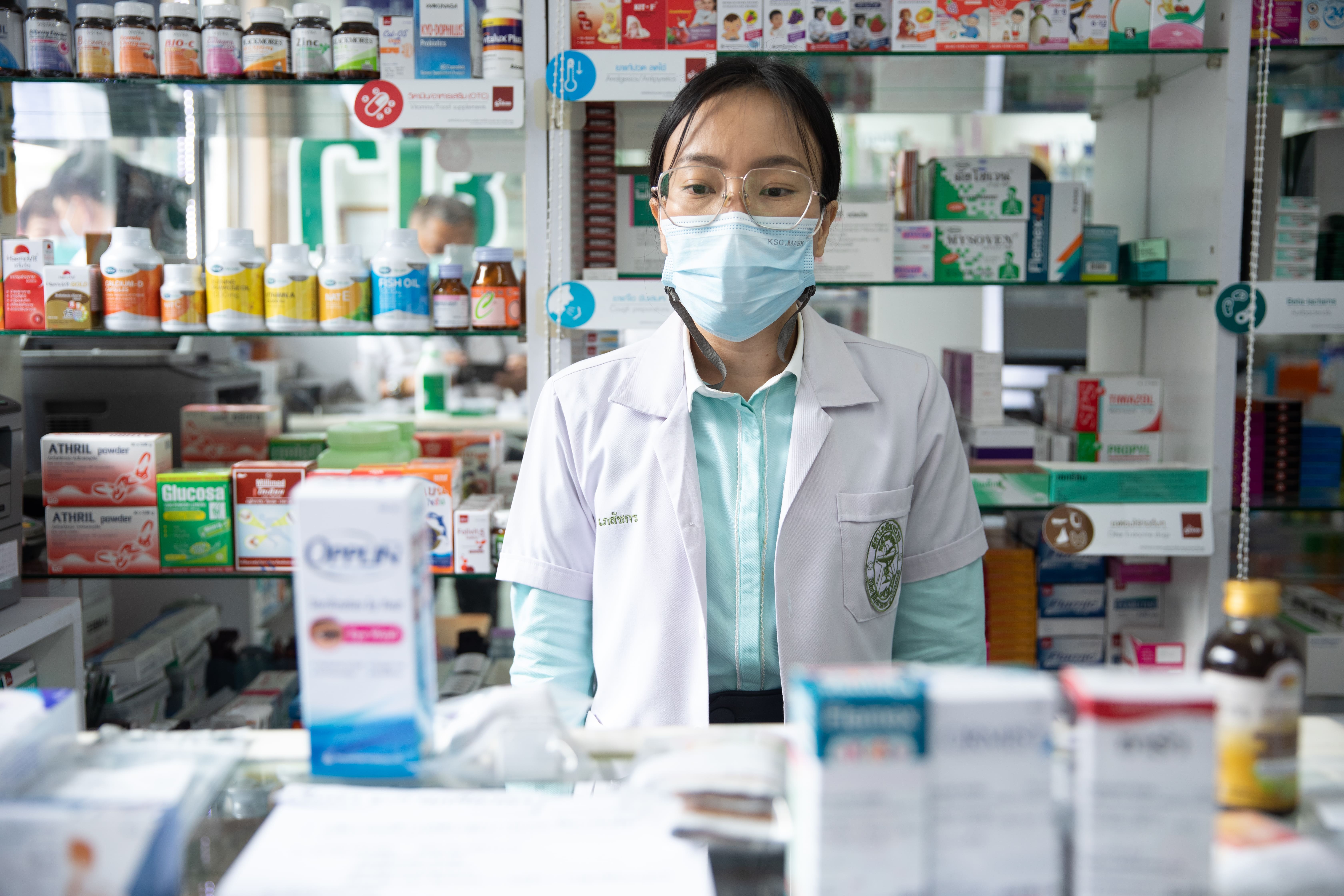
- Home
- DescriptionNews
Pharmacies vital to primary care

Pharmacies vital to primary care
Pharmacies play a vital role in primary care by improving people’s access to medicines and preliminary medical consultations.
Being aware of pharmacies’ importance, the National Health Security Office (NHSO), the Pharmacy Council of Thailand and the Bangkok Metropolitan Administration (BMA) have recently launched the “Pharmacy for common illness” initiative, aiming to increase people’s access to primary care.
In partnership with the NHSO, these pharmacies have provided free consultations and medicines to the beneficiaries of the Universal Coverage Scheme (UCS).
The NHSO, which oversees the UCS, covers the cost incurred during the consultations.
“Most people with minor illnesses will likely visit pharmacies, instead of hospitals. Therefore, pharmacies play a vital role as the health units caring for patients at the frontline,” said the NHSO secretary-general Dr Jadej Thammatacharee.

“Pharmacies are very close to people. They mushroom across the city. Because pharmacies are easily accessible by general people, the NHSO has involved them in the health system.”
Currently, more than 200 pharmacies in Bangkok partnering with the NHSO.
They provide medicines and consultations for 16 symptoms and diseases headache, dizziness, pain in joints, muscle pain, fever, cough, sore throat, stomachache, diarrhea, constipation, dysuria, vaginal discharge, skin rash/lesion, wound, eye, and ear disorder.
Some pharmacies also provide customers with free condoms and oral contraceptive pills to prevent sexually transmitted diseases.
Dr Jadej said that the NHSO will cover more items and services for partnered pharmacies in the 2023 fiscal year.
These include emergency contraception, pregnancy test, folic supplementary, mental health consultation, and screening for health risk factors.
Tavida Kamolvej, Deputy BMAGovernor, said that pharmacies could fill up the gap in primary care access.
The pharmacists can collaborate with health staff in state health centers and private clinics to provide people with care, she said.
Bangkok Metropolitan Administration (BMA) runs 69 health centers and 73 subsidiary clinics located across the capital. More than 500 private clinics and pharmacies have partnered with the NHSO.
“All these primary care units in combine can provide Bangkok people with adequate care,” said Tavida.
“The BMA and the NHSO have collaborated in expanding people’s access to primary healthcare. In the future, we will run mobile clinics with telemedicine services in areas lacking access to health units. Bangkok residents can consult doctors online and have medical checkups.”

Pharma Store on Ratchayothin Street is one of many pharmacies that has joined the primary care network of the NHSO.
Parichat Thammarati, a pharmacist at the store, said that her customers could request initial diagnoses and consultations for 16 symptoms and diseases, which are commonly found in her customers.
“We provide the patient's medicines and follow up their symptoms three days after visiting the pharmacy. The NHSO then reimburses the medicine cost for us,” she said.
“Having pharmacies act as the primary care units help people access healthcare effectively while reducing hospital crowding.

